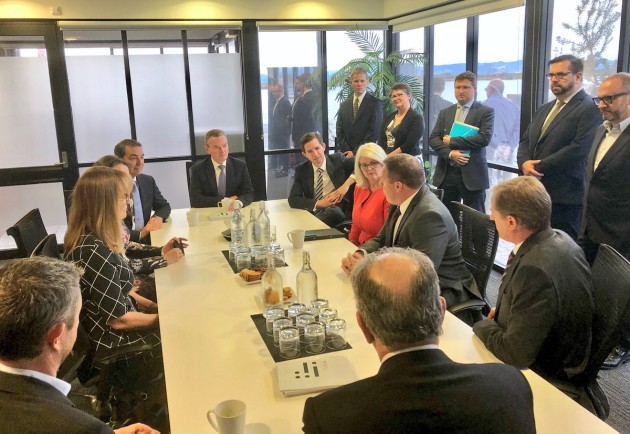Minister for Defence Industry Christopher Pyne, Minister for Education and Training Simon Birmingham, and Assistant Minister for Vocational Education and Skills Karen Andrews today announced that the Naval Shipbuilding Institute, a joint venture between Kellogg Brown & Root (KBR) and US shipbuilder Huntington Ingalls Industries (HII), has been selected as the preferred tenderer for the Naval Shipbuilding College.
Funding of $25 million for the college was mooted a little over a year ago in the wake of the release of the National Shipbuilding Plan, which acknowledged that a skilled workforce was an essential part of the success of the plan.
The Australian partners who have already come on board are:
· The Defence Teaming Centre
· UNISA
· University of Adelaide
· Flinders
· RMIT
· Edith Cowan
· TAFESA
· South Metro TAFE (WA)
· Indigenous Defence Consortium
· Australian Maritime College (Launceston)
Minister Pyne said the Naval Shipbuilding Institute (NSI) team represents over 200 years of commercial experience in naval shipbuilding education and skilling.
“More than 25,000 personnel will be needed directly or indirectly for the Government’s $90 billion commitment to a continuous shipbuilding program. The naval shipbuilding workforce in Australia is likely to grow to around 5,200 workers by the mid‑2020s, across a range of diverse job roles.”
Defence estimates that by the mid-2020s, the outfitting workforce (such as electricians, joiners and carpenters) will need to grow by more than 1,400 people. The structural workforce (such as boilermakers, structural workers and steelworkers) will need to grow by more than 1,000 people, and management staff will grow by more than 300.
Minister Birmingham said the Naval Shipbuilding College will be industry-driven to ensure the future workforce can meet the needs of the naval shipbuilding industry for decades to come.
“The College will work with a range of high-quality education and training providers to build their capacity and ensure our future workforce can meet the specialised requirements of the naval shipbuilding industry,” Minister Birmingham said.

Assistant Minister Andrews said the Naval Shipbuilding College would provide opportunities for education providers across Australia to collaborate in educating and training candidates for future employment.
The College will work with a range of education and training providers across Australia through a ‘hub and spoke’ model.
“A person could be enrolled at the Naval Shipbuilding College headquartered in Adelaide, but be completing the course at a registered training organisation or higher education provider in Perth, Sydney, Melbourne, Brisbane, Canberra, Hobart, or regional centres such as Launceston.”
“For our naval shipbuilding industry to be successful the College needs to have a national reach, which is why the Naval Shipbuilding College has established or will soon establish relationships with training or education providers in every state and territory,” Minister Pyne said.
HII and KBR have put together a team from the shipbuilding, education, training, academic and business sectors across Australia to run the Naval Shipbuilding College. These organizations include the Australian Maritime College in Launceston, TAFE centres in Adelaide and Fremantle, AiGroup, Manpower Group, PwC, Defence Teaming Centre and the Defence Industry Educational Skills Consortium. The team will leverage and build upon existing Australian capability to deliver workforce services for the college.





